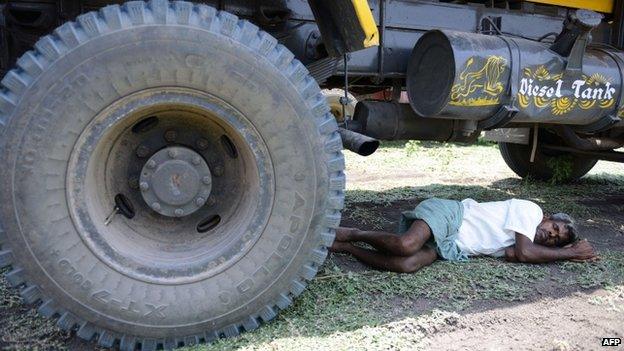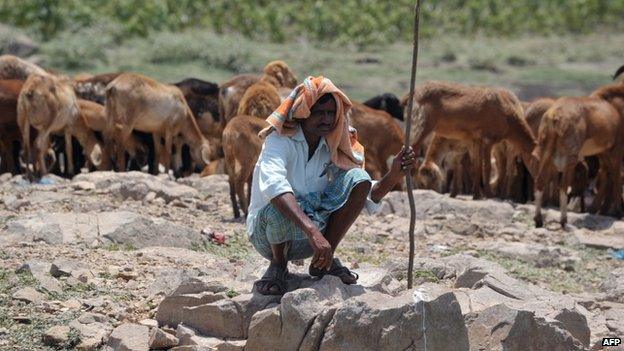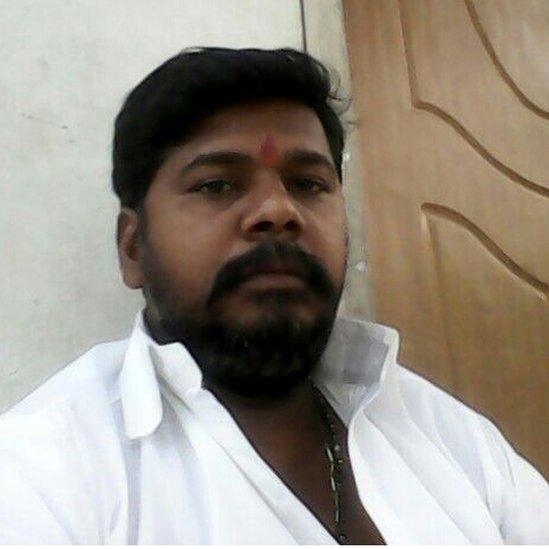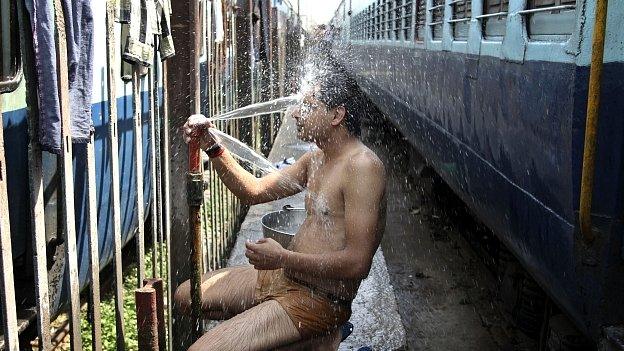Indians wilt under heatwave in Telangana state
- Published

Farmer Ahmed Pasha says water has dried up in wells and bore-holes
Residents of Nalgonda in India's newly-formed state of Telangana are used to temperatures peaking at 44C or 45C during the summer months.
But a two-degree rise in temperature and the intensity with which it has hit this time has left businessman Ravinder Reddy confined to his house for a full week.
"Two of my employees are in hospital due to heat strokes," he told the BBC.
Only four of his remaining 18 staff had reported to work, and that was because they lived nearby.
'Bats have fallen off trees'
And Mr Reddy said wildlife in the area was also suffering:
"Bats have fallen off the trees like leaves. And there are 100-200 of them which have perished, he said.
"We know of 15-20 peacocks having died."

Residents in Telangana's capital Hyderabad have been hit hard by the heat

Tending animals has become hard as temperatures veer towards 50C
"There is no water. Even the fluorine-contaminated ground water levels have fallen,'' Mr Reddy said.
His company manufacturers a modern version of the abacus and distributes it to Indian schools.
"On average, my unit supplies about 70,000 rupee ($1,100; £700) worth of this product daily to about 20 dealers as well as to schools in Hyderabad.
"For the past week, I have just not been able to deliver anything.
"Schools open next week. I don't know what to do,''

Ravinder Reddy: "I don't know what to do"
Elsewhere in Nalgonda, Ahmed Pasha cultivates 12 acres of land.
But the heat is taking a toll on his agricultural operations. He has not been able to prepare the soil for the rainy season.
"There is no water in the well or in the bore-hole.
"It has all gone so dry that more than 50% of the grass that I had grown for the buffaloes and the goats has dried up.
Mr Pasha described how his cattle were producing less milk while workers are suffering from heat stroke.
"Nobody is able to work in this heat. They have just stopped coming to the fields," he said.
"Drinking water has become so scarce that we don't know what to do. If it does not rain in the next week or so, we will be finished,'' he said.
So what were people doing there, I asked.
"We are praying,'' said Mr Pasha.
- Published25 May 2015
